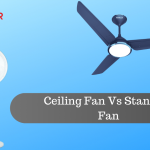Industrial cables differ from cables and wires used in domestic and commercial installations such as Polycab house wires. In keeping with the end user, such cables may be the armoured or non-armoured type, single insulated or double insulated, single core or multi-core types and heavy duty cables may even have insulation filling. The conductors are usually thicker and are made of aluminium, which is less ductile and less flexible compared to copper. Industrial cables carry heavy loads and are expensive. Therefore, proper maintenance and preventive care will help you avoid expensive replacement or worse, collateral damage such as those caused by fires. Replacement is expensive and downtime leads to production loss. These tips will help you prevent such situations from arising by taking proper care.
Buy only genuine, high-grade industrial wires and cables
This is obvious and needs no mention but still, industry owners leave it to electrical contractors who may buy cheaper products so insist they buy only quality cables from wire and cable dealers in Ahmedabad. Insist on branded cables such as Polycab, Havells or Finolex and check before the contractor carries out the wiring.
Terminations and wiring method
- Ensure that a suitable type of cable is used to handle the proposed load. If you expect 100 amperes load then choose a cable that will handle at least 150 amps or better still 200 amps. This way power surges are better handled and, in case of overload, the cable does not heat up and burn.
- Ensure proper termination methods and wiring methods are followed. Wires should not be drawn or stretched tight as a cost-saving measure. Allow slack. Use of terminations is recommended. In any case, ensure that the inner core does not bear the weight of the cable and that the cable is clamped properly.
- Allow slack to permit expansion and contraction due to temperature changes.
- If you are laying a cable underground to supply power to a machine, it is a good idea to route it through thick metallic pipe. This way, even if trolleys pass over the cable it will not be squashed.
- If cables pass overhead make sure they do not hang loose but are anchored to overhead support or to wall at regular intervals along the length.
- If flexible cable is used to feed power and it is wound on a reel then you should consider multiplication factor for ampere rating. The correction factor for 1 layer is 0.85, for 2 it is 0.65, for three it is 0.45 and for 4 layers it is 0.35 according to ICEA 5-75-381-2008. Keep this in mind and get cables from the trusted electrical company in Ahmedabad specializing in industrial cables.
- Make sure cables are not bent sharply at an angle but have a large radius for the bend.
If you are running a long length of cable allow for voltage drop and choose a cable with a bigger cross section for the conductor. Reduced voltage will cause machine’s motor to draw more current which will heat up motor and as a result the cable since higher than rated current is drawn, with disastrous consequences. - Teach workmen importance of treating cables right, not bunching or tightly bending and bunching them or hanging loads on electric cables.
Regular inspection
- If you have an infrared thermometer then it pays to use it at regular intervals to check if overhead cables and cables feeding power to machines are not heating up beyond the ambient temperature. A few degrees higher temperature is permissible. If it goes beyond 60 deg.C it is a warning sign to check load, cables and possibly remove the cause of overheating or put in place thicker cables.
- Carry out visual checks to find if cable is nicked or cracked or shows signs of bubbling at any spot.
If cables are exposed to sunlight the PVC/XLPE insulating materials are vulnerable to UV degradation so cover them with paint or sheath. - You have to be very particular to check for presence of rodents. Rats can cut cables partway through and this poses a risk to men at work.
- Check connections at switches and fuses for signs of blackening, sparks or heated contacts.
Repair cables when you see them nicked or cracked. Cut away damaged portions and use similar grade cable using proper joining methods or epoxy potting cable jointing kit.
Records
It pays to maintain detailed records:
- Date of purchase and installation of cables
- Which type of cable was used for which load points so you know load carrying capacity of various lines.
- Record of failure and reasons for such failure.
Do not compromise on cost of cables; get only quality branded cables from wire and cable dealers in Ahmedabad specializing in offering Havells, Polycab and Finolex industrial cables. Follow the above tips and your cables should power your production for years.




